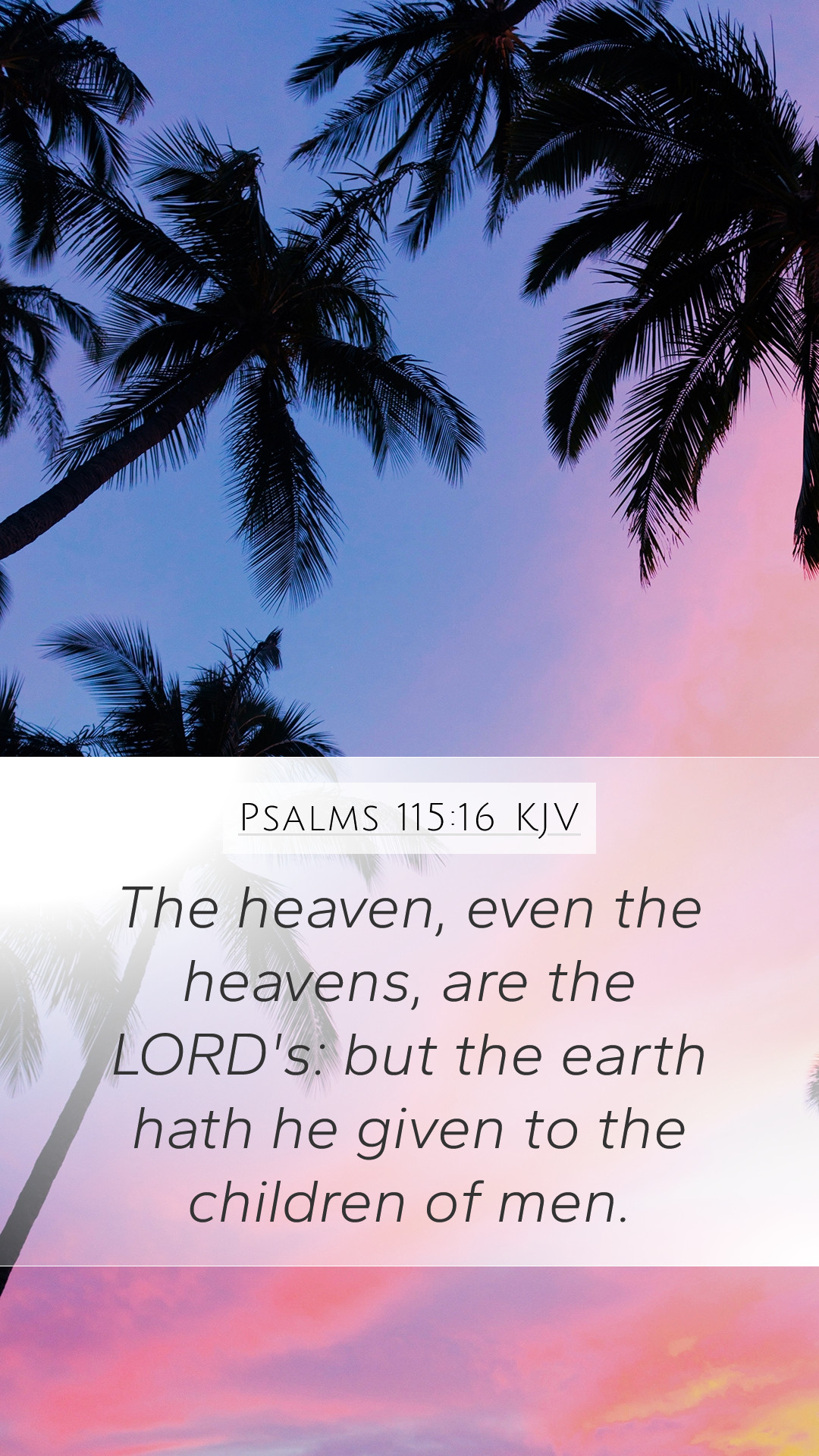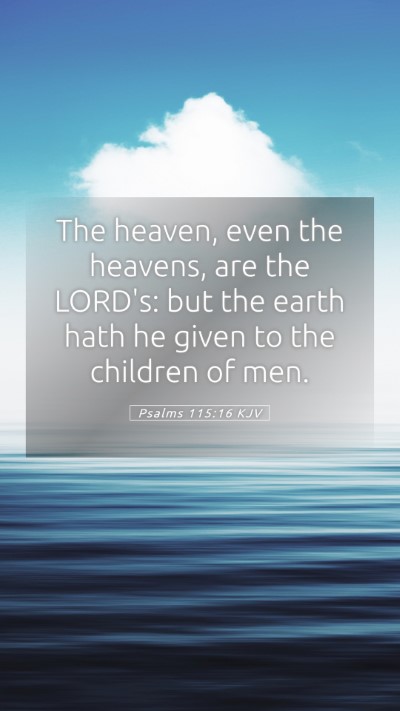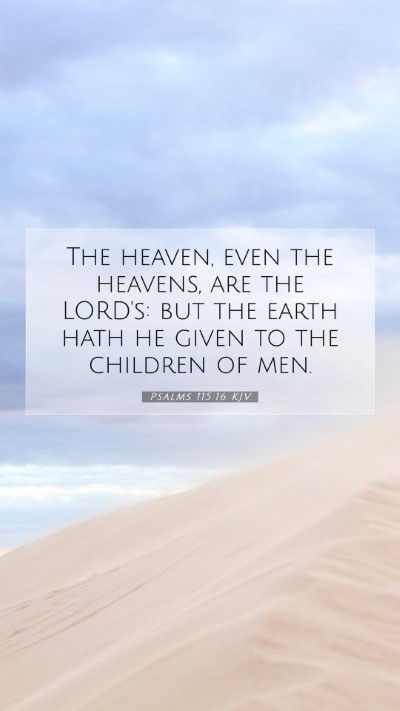Psalms 115:16 - Understanding Scripture
Psalms 115:16 states, "The heaven, even the heavens, are the LORD's: but the earth hath he given to the children of men." This verse encapsulates profound truths regarding the divine order of creation and humanity’s stewardship of the earth.
In this exploration, we will delve into the meanings and interpretations of this verse through the insights from classic public domain commentaries such as those by Matthew Henry, Albert Barnes, and Adam Clarke. The goal is to provide Bible verse meanings and a comprehensive understanding suitable for both individual study and Bible study groups.
Verse Meaning and Interpretations
Psalms 115:16 can be understood through several key themes:
- Divine Sovereignty: The verse begins with a declaration about heaven's ownership by the Lord. This signifies God's ultimate authority and control over all creation.
- Human Responsibility: The latter half of the verse emphasizes that the earth has been entrusted to humanity. This signifies a divine delegation of responsibility, indicating that humans are caretakers of the earth.
- Contrast Between Heaven and Earth: There is a clear distinction made between the heavens which belong to God and the earth which was given to men. This contrast can be seen as an encouragement to recognize the spiritual realm while acknowledging our duties in the physical world.
Bible Verse Commentary
Matthew Henry's Commentary:
Matthew Henry notes that this verse stresses God’s majestic reign over the heavens, emphasizing that He is the creator and sustainer of everything above. In contrast, Earth has been entrusted to humans, who must honor God's intention in their stewardship. This commentary reinforces the idea that our earthly realm should reflect the order and beauty of God's creation.
Albert Barnes' Notes:
Albert Barnes explains that the phrase "the earth hath he given to the children of men" indicates a significant grant from God to humanity, empowering them to manage and cultivate the earth. This echoes the creation narrative where humanity is commissioned to have dominion over the earth (Genesis 1:26-28). Barnes emphasizes the weight of this responsibility and the consequent accountability humans have before God for how they treat the earth.
Adam Clarke's Commentary:
Adam Clarke elaborates on the implication of this verse as a reminder of human frailty and divine authority. He suggests that while mankind has dominion over the earth, it is essential to recognize that our power is limited and must be exercised with reverence towards God. Clarke's interpretation encourages believers to live in harmony with God's creation and to be stewards who promote the flourishing of life on earth.
Applications of the Verse
When considering the application of Psalms 115:16, the following aspects come to light:
- Stewardship: This verse serves as a reminder for Christians to engage in responsible environmental practices, viewing the care for creation as a form of worship and obedience to God.
- Faith in Divine Providence: Understanding that while humanity manages the earth, ultimate authority belongs to God provides comfort and assurance that He is sovereign in all circumstances.
- Community and Responsibility: Believers are called to foster a sense of community and shared responsibility for their local and global environment, recognizing the interconnectedness of all creation.
Additional Insights
This verse ties beautifully with other scriptures that illuminate God's relationship with humanity and creation:
- Genesis 1:26-28: This passage describes God's initial command to humanity to rule over the earth.
- Job 34:14-15: These verses reflect on God's control over both humanity and nature, reinforcing His sovereign authority.
- Romans 8:19-22: This text indicates that all creation eagerly awaits redemption, acknowledging the impact of human sin on the earth.
Conclusion
Psalms 115:16 serves as a powerful reminder of the intricate balance between divine sovereignty and human responsibility. As individuals and communities seek to understand Scripture, this verse offers a grounding perspective that challenges believers to live in accordance with God's will while acknowledging His power over all creation.
For those seeking deeper Bible study insights, this verse provides fertile ground for exploring themes of stewardship, divine ownership, and the relationship between the spiritual and physical realms. Engaging with this verse through various Bible study resources can significantly enhance understanding and application in daily life.


